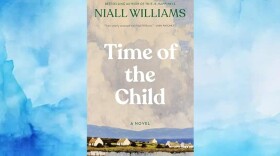-
Camille Bordas discusses her story collection, One Sun Only. She also shares her thoughts on writing about loss, reading nonfiction for inspiration for writing fiction and balancing humor with the more serious subject matter of her stories.
-
To celebrate the fiftieth episode of "The Lonely Voice" podcast, Peter Orner and Yvette Benavides discuss the four stories in the "Edouard, Juliette, Lena" story cycle — "A Recollection," "The Colonel's Child," "Rue de Lille," and "Lena."
-
On this episode, Yvette Benavides shares a reflection on ‘To Absent Friends: Eudora Welty’s Correspondence with Frank Lyell’ selected and edited by Julia Eichelberger.
-
Yvette Benavides and Peter Orner discuss “Out with the Old” by Richard Yates. The setting is a tuberculosis ward in a veterans' hospital on December 31,1950. Dreams have faded for these patients whose best years seem to be behind them. For the character of McIntyre something miraculous happens. This is a powerful New Year’s Eve story.
-
Miss Snell isn’t as fun as other third grade teachers. Come the last day of school before the Christmas holiday, she holds a regular class day. There are no treats to eat and no presents. What can the students learn from their disappointment? What are the larger lessons for the rest of us? Yvette Benavides and Peter Orner discuss “Fun with a Stranger” by Richard Yates.
-
Every year, we ask NPR staff and book critics to share their favorite titles in our annual Books We Love guide. Here are 8 fiction picks that were standout stars.
-
The village of Faha in Ireland in 1962 is the setting of the latest novel by Niall Williams, Time of the Child. The protagonist, Dr. Jack Troy, is a quiet, serious man who lives alone with his eldest daughter — and a world of regret. One December day, a baby is left in his care — and will make him re-think every silence and secret he’s ever clung to. Yvette Benavides shares a review of the novel “Time of the Child” by Niall Williams.
-
Prayers, grace, words of gratitude. Doesn’t it seem like Thanksgiving is the perfect holiday for poetry? Yvette Benavides, the host of 'Book Public,' shares some of her favorite poems about giving thanks.
-
On this episode of "The Lonely Voice," Peter Orner and Yvette Benavides discuss the story “Love” by William Maxwell. A man recalls his fifth-grade teacher—a young woman who was kind and thoughtful. She becomes the center of a very hard lesson the protagonist learns in childhood about the impermanence of things.
-
An award-winning children's picture book, Strega Nona by Tomie dePaola, turns 50. The story about a grandma witch with her magically full pot of pasta still finds new audiences — even on TikTok.
Play Live Radio
Next Up:
0:00
0:00
Available On Air Stations









